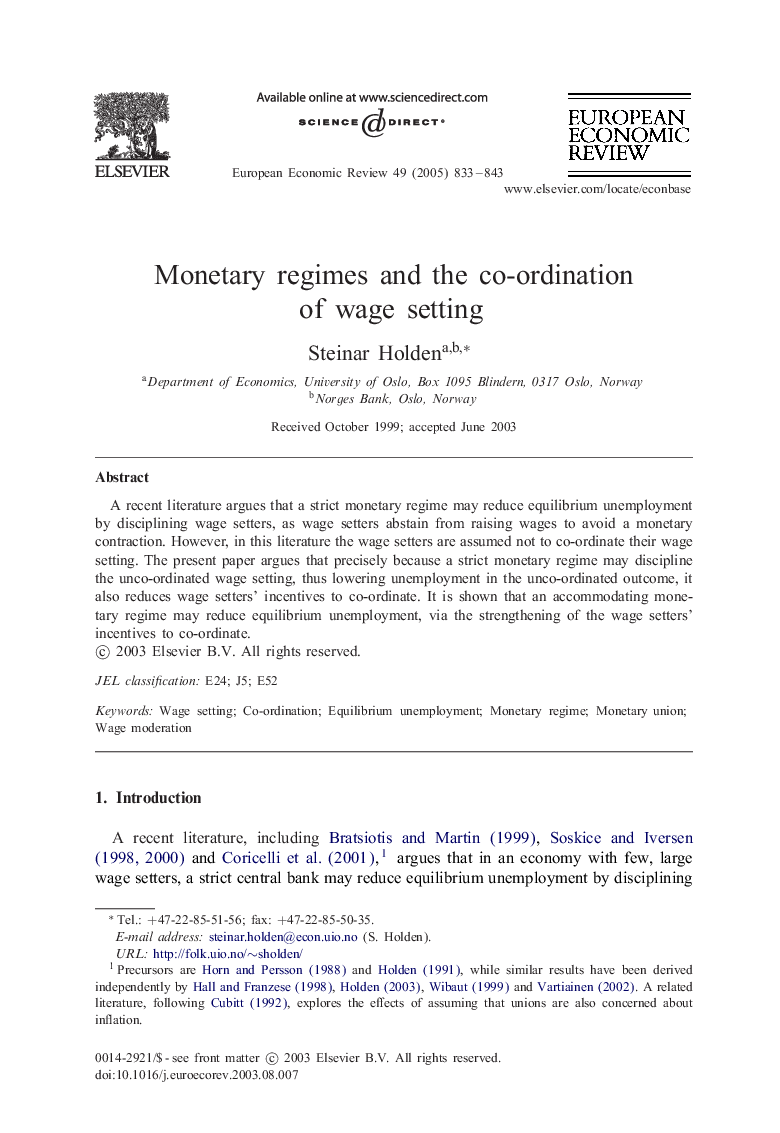| Article ID | Journal | Published Year | Pages | File Type |
|---|---|---|---|---|
| 9550988 | European Economic Review | 2005 | 11 Pages |
Abstract
A recent literature argues that a strict monetary regime may reduce equilibrium unemployment by disciplining wage setters, as wage setters abstain from raising wages to avoid a monetary contraction. However, in this literature the wage setters are assumed not to co-ordinate their wage setting. The present paper argues that precisely because a strict monetary regime may discipline the unco-ordinated wage setting, thus lowering unemployment in the unco-ordinated outcome, it also reduces wage setters' incentives to co-ordinate. It is shown that an accommodating monetary regime may reduce equilibrium unemployment, via the strengthening of the wage setters' incentives to co-ordinate.
Related Topics
Social Sciences and Humanities
Economics, Econometrics and Finance
Economics and Econometrics
Authors
Steinar Holden,
